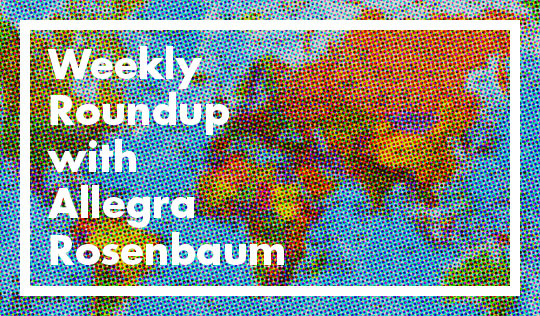Friday is trickling in through the time zones of the world this morning, Asymptote readers. And trickling along with it is today’s Weekly News Round Up. We start this week with some self-reflection on self-translation in this essay by Ilan Stavans. Stavans is a polyglot who speaks English, Spanish, Yiddish, and Hebrew. In 2001, he published his memoir On Borrowed Words, which was supposed to cover the subject of self-translation. Since then, Stavans has more to say about it.
Self-reflection can lead people down paths of self-discovery, and critical thinking can do the same. However there are sources that spark critical thinking that leads to nothing, or perhaps, too much of something. This may be the case of the cryptic Voynich Manuscript, about to be released by a Spanish publisher. Apparently no living person can understand it.
There’s the cryptic and then there’s the masterpiece. Both can include puzzles revealing more about the world around us. One masterpiece that is soon to be released in English is Argentinian author Antonio Di Benedetto’s Zama. Influenced by Dostoyevsky, the novel takes place in Asunción, the current capital of Paraguay, during the end of the 18th century.
Attempting to create a masterpiece can cause high expectations, much like the ones at the Mediterranean Literature Festival this weekend. Attendees are told they can “expect the best” there. The festival is taking place at Fort St. Elmo in Malta. This interview with Teodor Reljic has the scoop.
Being the best at something and being the first to do something both hold high standards in human society. I don’t know why that is, but I am excited to report that professor and author Cao Wenxuan is the first Chinese recipient of the Hans Christian Anderson award for children’s literature. That’s a first and a best! Professor Cao’s works have been translated into many different languages including English.
And in the “best of the best,” there are the Nobel Laureates, such as Svetlana Alexievich. Alexievich spoke with John Freeman at LitHub this week to discuss how the writer listens. Alexievich is an avid listener, and her writing shows it.
I leave you, fair Asymptote readers, with a listicle. It’s not just any listicle; it’s a listicle of women in translation. These women translators are most certainly worth your time, your eyes, and your ears. I hope you’ll give at least a few of them that attention. Until next week!
*****
Read more News:

